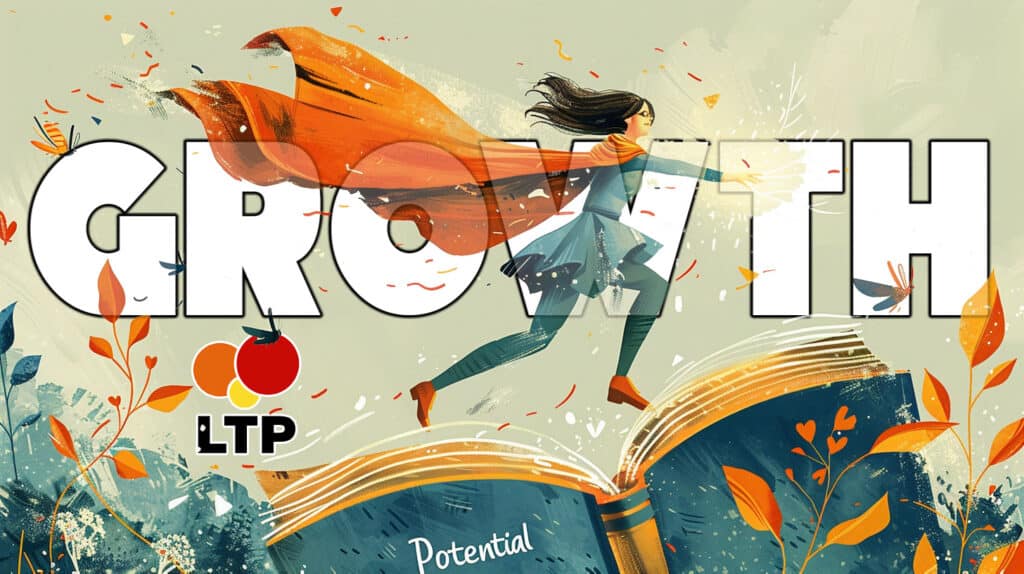


Have you ever felt a yearning for self-improvement and growth in various facets of your life? Personal growth is more than just a goal—it’s a transformative journey towards becoming the best version of yourself.
At its core, personal growth involves challenges, learning from experiences, and nurturing a mindset focused on continuous improvement. It’s about self-awareness, enhancing relationships, advancing careers, and achieving overall well-being.
In this article, I’ll guide you through a comprehensive Personal Growth Checklist, encompassing essential practices like developing positive habits, prioritizing self-care, and overcoming limiting beliefs.
These steps are designed to empower you to cultivate resilience, achieve your aspirations, and lead a more fulfilling life.
After reading this article, you’ll be equipped with practical strategies and insights to ignite your personal growth journey.
Join me on this journey of discovery and transformation—where every step forward brings you closer to realizing your full potential.
See also Selfcare Reminders: 10 Mindful Moments in Daily Life as a Routine
What is Personal Growth?

Personal growth encompasses the continuous process of self-improvement and personal development aimed at becoming the best version of oneself. It involves adopting a growth mindset, which embraces challenges, learning, and growth opportunities.
Self-reflection plays a crucial role, allowing individuals to assess their strengths, weaknesses, and areas for improvement. Personal growth extends to various aspects of life, including relationships, career, health, and skills development.
It requires stepping out of one’s comfort zone, committing to continuous improvement, and being focused on long-term goals. It’s not a quick fix but a lifelong journey of growth and development.
By cultivating gratitude, individuals can appreciate their progress and accomplishments along the way.
Personal growth starts with a commitment to begin the journey, regardless of financial resources or circumstances, and it’s about gaining perspective and evolving into the best version of oneself.
Importance of Personal Growth

Personal growth is vital for overall happiness and fulfillment in life. It marks the beginning of a journey toward self-discovery and improvement. By prioritizing personal growth, individuals invest in their mental well-being, helping a sense of fulfillment and purpose.
It allows them to identify areas in their lives that require attention and development, leading to greater self-awareness and resilience in facing challenges.
Aspects such as self-care and financial stability are enhanced, contributing to a sense of security and wellness. Moreover, personal growth enables individuals to evolve and expand their horizons, both personally and professionally.
By documenting their growth journey and holding themselves accountable, individuals can track their progress and celebrate achievements, empowering them to lead more fulfilling lives. In the new year and beyond, personal growth is not something to wait for but a conscious decision to continuously evolve and thrive in all aspects of life.
Here are 10 reasons why personal growth is important:
- Self-Actualization: It enables individuals to realize their full potential and achieve their aspirations.
- Continuous Improvement: Facilitates ongoing learning and development in various aspects of life.
- Increased Self-Awareness: Enhances understanding of strengths, weaknesses, and areas for improvement.
- Adaptability: Helps in adapting to changes and overcoming challenges more effectively.
- Career Advancement: Enhances skills and knowledge crucial for career progression and success.
- Health and Well-being: Promotes mental and emotional well-being, leading to a healthier lifestyle.
- Enhanced Relationships: Improves communication, empathy, and interpersonal skills.
- Purpose and Meaning: Provides clarity in goals and aspirations, leading to a more fulfilling life.
- Resilience: Builds resilience to cope with setbacks and navigate through life’s ups and downs.
- Contributing to Society: Enables individuals to make meaningful contributions to their communities and society at large.
Personal Growth Checklist Items

The Personal Growth Checklist encompasses various items that promote self-improvement and personal development. It begins with cultivating a growth mindset, self-reflection, and enhancing self-awareness to identify areas for growth.
Prioritizing self-care, including healthy eating and mental well-being, is essential for nurturing oneself and boosting confidence and self-esteem. Building an emergency fund contributes to financial stability, reducing stress and anxiety.
Strengthening relationships and communication skills are key ways to become a better person and help personal growth.
Each item on the checklist plays a vital role in guiding individuals towards becoming the best version of themselves, equipping them with the skills and mindset needed to thrive in various aspects of life based on personal experience and continuous self-improvement efforts.
Here are 6 personal growth items:
1. Developing Positive Habits
Developing positive habits is essential for personal growth and overall well-being. By incorporating habits such as regular exercise, following a self-care planner, and self-love checklist, and managing finances effectively, individuals can create a foundation for success in various areas of life.
Prioritizing personal hygiene, consuming nutritious foods, managing stress, and money management, also contribute to physical and mental health.
As these habits become ingrained in daily life, individuals can progress beyond their comfort zones, build confidence, and achieve their goals.
Each positive habit serves as a building block for personal improvement and allows individuals to navigate life with greater focus, resilience, and hope.
Through reflection and self-awareness, individuals can identify areas for growth, acquire new knowledge and skills, and cultivate habits that align with their values and aspirations, ultimately leading to a more fulfilling and purposeful life.
Here’s a list on how to develop positive habits in personal growth:
- Set Clear Goals: Define specific objectives that align with your growth.
- Start Small: Begin with manageable habits to build momentum.
- Establish a Routine: Create a consistent schedule to reinforce new habits.
- Stay Accountable: Share goals or track progress to stay motivated.
- Practice Self-Discipline: Resist distractions and stay focused on goals.
- Use Positive Reinforcement: Reward yourself for sticking to habits.
- Learn from Setbacks: Embrace failures as learning opportunities.
- Seek Support: Surround yourself with encouraging individuals or mentors.
- Monitor Progress: Regularly assess habits and adjust as needed.
- Stay Consistent: Consistency ensures lasting positive change in personal growth.
2. Prioritizing Self-Care
Prioritizing self-care is an essential component of personal growth, encompassing various activities and practices that nurture your physical, mental, and emotional well-being.
Incorporating self-care reminders into your routine, such as indulging in spa treatments, using meditation tools, practicing yoga, or seeking support from a psychologist, can help you become more aware of your needs and take action to address them.
Engaging in activities like watching movies or reading self-love books can provide a sense of relaxation and rejuvenation. Self-care is a commitment to your health and happiness, allowing you to cultivate gratitude, accomplish goals, and gain perspective on life.
Here’s a list of 10 self-care options:
- Meditation
- Exercise Regularly
- Practice Gratitude
- Journaling
- Healthy Eating, Drinking water and Multi vitamins
- Get Enough Sleep
- Regular Physical Checkups
- Massages and Spa
- Unplug and Disconnect from cellphones
- Seek Counseling or Therapy
- Spend Time in Nature
3. Stepping Out of Comfort Zones
Stepping out of comfort zones is crucial for personal growth as it entails challenges and venturing into unfamiliar territory. It involves taking on new responsibilities, such as trying different activities or pursuing new career opportunities, which can lead to personal development.
By pushing beyond their comfort zones, individuals discover the difference between merely existing and truly living, helping gratitude for the richness of life’s experiences.
Whether it’s trying a new hobby, meeting new people, or going on adventures, stepping out of their comfort zones allows individuals to evolve and expand their horizons.
It requires being accountable for one’s actions, documenting progress, and celebrating accomplishments along the way. Ultimately, stepping out of comfort zones is the first step towards achieving personal goals, enriching life’s journey, and new growth opportunities.
Here are 12 potential challenges of stepping out of your comfort zone:
- Fear and Anxiety: Venturing into unfamiliar territory can trigger feelings of fear, anxiety, or stress.
- Risk of Failure: Trying new things involves uncertainty and the possibility of not achieving desired outcomes.
- Discomfort: It may be physically, emotionally, or mentally uncomfortable to face new challenges or situations.
- Overwhelming: The pressure or demands of unfamiliar tasks or environments can be overwhelming.
- Resistance: There may be resistance or pushback from others or from within yourself against change or growth.
- Loss of Control: Stepping out of your comfort zone can sometimes mean relinquishing control over familiar routines or outcomes.
- Time and Effort: It often requires extra time, effort, and dedication to learn new skills or adapt to new situations.
- Criticism: Trying new things may expose you to criticism or judgment from others.
- Isolation: It can lead to feelings of isolation or being disconnected from your usual support network.
- Burnout: Constantly pushing boundaries without adequate rest or self-care can lead to physical or mental exhaustion.
- Setbacks: Setbacks or failures along the way can dampen motivation and confidence.
- Lack of Immediate Rewards: The benefits of stepping out of your comfort zone may not be immediately apparent or tangible.
See also Self-Care Night Checklist: 10 Routines to Your Evening Relaxation
4. Taking Risks and Experiencing Failure
Taking risks and experiencing failure are integral parts of personal growth and development. When we step out of our comfort zones and take risks, we expand our horizons and open ourselves up to new opportunities for learning and growth.
Failure, although initially disappointing, provides valuable lessons that can help us improve and become better versions of ourselves.
Through self-reflection and self-awareness, we can identify areas for improvement and develop strategies to overcome challenges.
Additionally, taking risks and experiencing failure can boost confidence and self-esteem, as we learn to trust in our abilities and resilience.
By taking risks and failure as essential components of the journey towards our best selves, we can progress and achieve success in various aspects of our lives, leading to a more fulfilling and meaningful existence.
Here’s a list of 10 tips for taking risks:
- Define your goal clearly.
- Evaluate risks and rewards.
- Develop a plan to minimize pitfalls.
- Start with smaller risks.
- Seek advice from mentors.
- Challenge limiting beliefs.
- Visualize success to boost motivation.
- Learn from failures.
- Take decisive action despite fear.
- Stay flexible and adapt as needed.
5. Welcoming Feedbacks
Welcoming feedback is an essential aspect of personal growth, offering valuable insights that can lead to self-improvement and success in various areas of life. Whether it’s from a partner, family member, colleague, or mentor, feedback provides an opportunity to gain new perspectives and identify blind spots.
By creating a checklist and actively seeking feedback on areas such as relationships, work-life balance, body, and exercise, individuals can better understand their strengths and areas for improvement.
Taking action based on feedback demonstrates confidence and a willingness to grow. It’s a focused process that can make a significant difference in achieving personal and professional goals.
Expressing gratitude for feedback received helps a supportive environment and encourages others to provide honest input.
Considering feedback as part of the journey allows individuals to accomplish more and begin the journey towards self-discovery and improvement.
6. Overcoming Limiting Beliefs
Overcoming limiting beliefs is a crucial aspect of personal growth, empowering individuals to create the life they desire.
By challenging and replacing negative beliefs with positive affirmations, individuals can cultivate confidence and self-improvement in various areas, whether in health, relationships, business, or personal development.
Making a conscious effort to prioritize self-care, exercise, and healthy eating can support mental well-being and physical health, leading to greater success and improvement in all aspects of life. It’s important to reflect on limiting beliefs, focus on knowledge and growth, and consistently check in with oneself to ensure progress and evolution.
Overcoming limiting beliefs opens doors to new opportunities and allows individuals to achieve their goals and thrive in a world of endless possibilities.
Here’s 8 tips on how to overcome limiting beliefs:
- Identifying Limiting Beliefs: Recognize thoughts that hold you back, such as “I’m not good enough” or “I can’t do it.”
- Understanding Origins: Reflect on where these beliefs came from—past experiences, upbringing, or societal influences.
- Challenging Beliefs: Question the validity of these beliefs. Are they based on facts or assumptions?
- Replacing with Empowering Beliefs: Create new, positive beliefs like “I am capable of growth” or “I learn from challenges.”
- Visualization and Affirmations: Use visual imagery and positive affirmations to reinforce new beliefs.
- Setting Realistic Goals: Break tasks into smaller steps to build confidence and show progress.
- Continuous Learning: Educate yourself through books, workshops, or therapy to reshape perspectives.
- Taking Action: Overcome fear by taking small risks regularly, gradually expanding comfort zones.
Benefits of Personal Growth Checklist

The Personal Growth Checklist is a comprehensive document designed to guide individuals toward becoming the best version of themselves.
It encompasses various aspects of life, from physical well-being to financial stability and personal development.
By prioritizing activities such as regular exercise, building an emergency fund, and engaging in self-reflection, individuals can enhance their self-awareness, confidence, and overall success. Cultivating healthy habits, seeking knowledge, and focusing on personal growth not only benefit the individual but also contribute positively to the world around them.
Here are 9 benefits of using a personal growth checklist:
- Organization: Helps organize thoughts, priorities, and actions.
- Efficiency: Improves efficiency in tackling tasks and achieving goals.
- Self-Reflection: Encourages regular self-reflection and introspection.
- Direction: Provides direction and a roadmap for personal development.
- Consistency: Promotes consistency in pursuing growth and improvement.
- Self-empowerment: Fosters a sense of empowerment and control over one’s life.
- Goal Setting: Facilitates effective goal setting and goal management.
- Learning: Facilitates continuous learning and skill development.
- Community: Connects individuals with communities and resources for support and collaboration.
See also Self-Love Activities: 12 Useful Activities Honoring Your Mind, Body, and Soul
Personal Growth Checklist: A Recap
The Personal Growth Checklist is a powerful tool for life planning and self-improvement. By becoming self-aware and reflecting on habits and feelings, individuals can create a roadmap for personal development.
Prioritizing physical well-being, financial stability, and confidence-building activities such as creating an emergency fund are crucial steps. It’s essential to make self-improvement a habit, starting with small, manageable steps and gradually evolving.
As the new year approaches, consider allocating time and resources to explore new things and invest in courses or activities that support personal growth such as life planning.
By focusing on multiple areas of life, individuals can ensure a balanced approach to self-improvement and enhance their overall well-being and success in business, relationships, and beyond.
With the Personal Growth Checklist, individuals have the power to take charge of their lives and create positive change.


